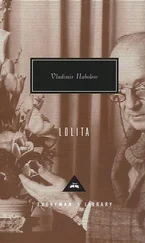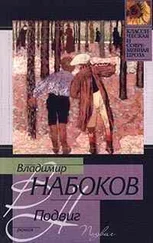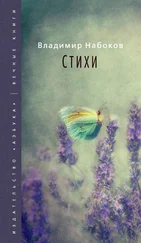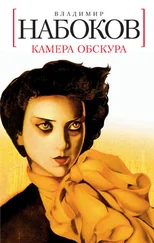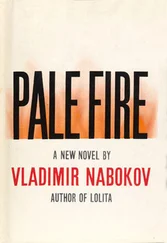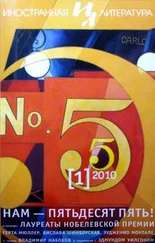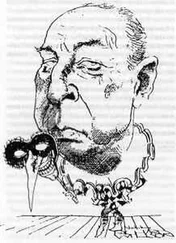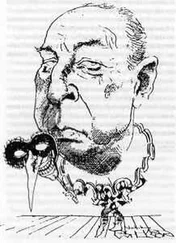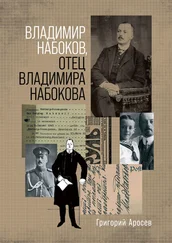Владимир Набоков - Pale Fire
Здесь есть возможность читать онлайн «Владимир Набоков - Pale Fire» весь текст электронной книги совершенно бесплатно (целиком полную версию без сокращений). В некоторых случаях можно слушать аудио, скачать через торрент в формате fb2 и присутствует краткое содержание. Жанр: Классическая проза, на английском языке. Описание произведения, (предисловие) а так же отзывы посетителей доступны на портале библиотеки ЛибКат.
- Название:Pale Fire
- Автор:
- Жанр:
- Год:неизвестен
- ISBN:нет данных
- Рейтинг книги:4 / 5. Голосов: 1
-
Избранное:Добавить в избранное
- Отзывы:
-
Ваша оценка:
- 80
- 1
- 2
- 3
- 4
- 5
Pale Fire: краткое содержание, описание и аннотация
Предлагаем к чтению аннотацию, описание, краткое содержание или предисловие (зависит от того, что написал сам автор книги «Pale Fire»). Если вы не нашли необходимую информацию о книге — напишите в комментариях, мы постараемся отыскать её.
Pale Fire — читать онлайн бесплатно полную книгу (весь текст) целиком
Ниже представлен текст книги, разбитый по страницам. Система сохранения места последней прочитанной страницы, позволяет с удобством читать онлайн бесплатно книгу «Pale Fire», без необходимости каждый раз заново искать на чём Вы остановились. Поставьте закладку, и сможете в любой момент перейти на страницу, на которой закончили чтение.
Интервал:
Закладка:
We never discussed, John Shade and I, any of my personal misfortunes. Our close friendship was on that higher, exclusively intellectual level where one can rest from emotional troubles, not share them. My admiration for him was for me a sort of alpine cure. I experienced a grand sense of wonder whenever I looked at him, especially in the presence of other people, inferior people. This wonder was enhanced by my awareness of their not feeling what I felt, of their not seeing what I saw, of their taking Shade for granted, instead of drenching every nerve, so to speak, in the romance of his presence. Here he is, I would say to myself, that is his head, containing a brain of a different brand than that of the synthetic jellies preserved in the skulls around him. He is looking from the terrace (of Prof. C.'s house on that March evening) at the distant lake. I am looking at him, I am witnessing a unique physiological phenomenon: John Shade perceiving and transforming the world, taking it in and taking it apart, re-combining its elements in the very process of storing them up so as to produce at some unspecified date an organic miracle, a fusion of image and music, a line of verse. And I experienced the same thrill as when in my early boyhood I once watched across the tea table in my uncle's castle a conjurer who had just given a fantastic performance and was now quietly consuming a vanilla ice. I stared at his powdered cheeks, at the magical flower in his buttonhole where it had passed through a succession of different colors and had now become fixed as a white carnation, and especially at his marvelous fluid-looking fingers which could if he chose make his spoon dissolve into a sunbeam by twiddling it, or turn his plate into a dove by tossing it up in the air.
Shade's poem is, indeed, that sudden flourish of magic: my gray-haired friend, my beloved old conjurer, put a pack of index cards into his hat - and shook out a poem.
To this poem we now must turn. My Foreword has been, I trust, not too skimpy. Other notes, arranged in a running commentary, will certainly satisfy the most voracious reader. Although those notes, in conformity with custom, come after the poem, the reader is advised to consult them first and then study the poem with their help, rereading them of course as he goes through its text, and perhaps, after having done with the poem, consulting them a third time so as to complete the picture. I find it wise in such cases as this to eliminate the bother of back-and-forth leafings by either cutting out and clipping together the pages with the text of the thing, or, even more simply, purchasing two copies of the same work which can then be placed in adjacent positions on a comfortable table - not like the shaky little affair on which my typewriter is precariously enthroned now, in this wretched motor lodge, with that carrousel inside and outside my head, miles away from New Wye. Let me state that without my notes Shade's text simply has no human reality at all since the human reality of such a poem as his (being too skittish and reticent for an autobiographical work), with the omission of many pithy lines carelessly rejected by him, has to depend entirely on the reality of its author and his surroundings, attachments and so forth, a reality that only my notes can provide. To this statement my dear poet would probably not have subscribed, but, for better or worse, it is the commentator who has the last word.
CHARLES KINBOTE Oct. 19, 1959, Cedarn, Utana
PALE FIRE
A Poem in Four Cantos
Canto One
1I was the shadow of the waxwing slain
By the false azure in the windowpane;
I was the smudge of ashen fluff - and I
Lived on, flew on, in the reflected sky.
And from the inside, too, I'd duplicate
Myself, my lamp, an apple on a plate:
Uncurtaining the night, I'd let dark glass
Hang all the furniture above the grass,
And how delightful when a fall of snow
10Covered my glimpse of lawn and reached up so
As to make chair and bed exactly stand
Upon that snow, out in that crystal land!
Retake the falling snow: each drifting flake
Shapeless and slow, unsteady and opaque,
A dull dark white against the day's pale white
And abstract larches in the neutral light.
And then the gradual and dual blue
As night unites the viewer and the view,
And in the morning, diamonds of frost
20Express amazement: Whose spurred feet have crossed
From left to right the blank page of the road?
Reading from left to right in winter's code:
A dot, an arrow pointing back; repeat:
Dot, arrow pointing back... A pheasant's feet
Torquated beauty, sublimated grouse,
Finding your China right behind my house.
Was he in Sherlock Holmes, the fellow whose
Tracks pointed back when he reversed his shoes?
All colors made me happy: even gray.
30My eyes were such that literally they
Took photographs. Whenever I'd permit,
Or, with a silent shiver, order it,
Whatever in my field of vision dwelt -
An indoor scene, hickory leaves, the svelte
Stilettos of a frozen stillicide -
Was printed on my eyelids' nether side
Where it would tarry for an hour or two,
And while this lasted all I had to do
Was close my eyes to reproduce the leaves,
40Or indoor scene, or trophies of the eaves.
I cannot understand why from the lake
I could make out our front porch when I'd take
Lake Road to school, whilst now, although no tree
Has intervened, I look but fail to see
Even the roof. Maybe some quirk in space
Has caused a fold or furrow to displace
The fragile vista, the frame house between
Goldsworth and Wordsmith on its square of green.
I had a favorite young shagbark there
50With ample dark jade leaves and a black, spare,
Vermiculated trunk. The setting sun
Bronzed the black bark, around which, like undone
Garlands, the shadows of the foliage fell.
It is now stout and rough; it has done well.
White butterflies turn lavender as they
Pass through its shade where gently seems to sway
The phantom of my little daughter's swing.
The house itself is much the same. One wing
We've had revamped. There's a solarium. There's
60A picture window flanked with fancy chairs.
TV's huge paperclip now shines instead
Of the stiff vane so often visited
By the naïve, the gauzy mockingbird
Retelling all the programs she had heard;
Switching from chippo-chippo to a clear
To-wee, to-wee; then rasping out: come here,
Come here, come herrr'; flirting her tail aloft,
Or gracefully indulging in a soft
Upward hop-flop, and instantly (to-wee!)
70Returning to her perch - the new TV.
I was an infant when my parents died.
They both were ornithologists. I've tried
So often to evoke them that today
I have a thousand parents. Sadly they
Dissolve in their own virtues and recede,
But certain words, chance words I hear or read,
Such as "bad heart" always to him refer,
And "cancer of the pancreas" to her.
A preterist: one who collects cold nests.
80Here was my bedroom, now reserved for guests.
Here, tucked away by the Canadian maid,
I listened to the buzz downstairs and prayed
For everybody to be always well,
Uncles and aunts, the maid, her niece Adéle
Who'd seen the Pope, people in books, and God.
I was brought up by dear bizarre Aunt Maud,
A poet and a painter with a taste
For realistic objects interlaced
With grotesque growths and images of doom.
90She lived to hear the next babe cry. Her room
We've kept intact. Its trivia create
A still life in her style: the paperweight
Of convex glass enclosing a lagoon,
Читать дальшеИнтервал:
Закладка:
Похожие книги на «Pale Fire»
Представляем Вашему вниманию похожие книги на «Pale Fire» списком для выбора. Мы отобрали схожую по названию и смыслу литературу в надежде предоставить читателям больше вариантов отыскать новые, интересные, ещё непрочитанные произведения.
Обсуждение, отзывы о книге «Pale Fire» и просто собственные мнения читателей. Оставьте ваши комментарии, напишите, что Вы думаете о произведении, его смысле или главных героях. Укажите что конкретно понравилось, а что нет, и почему Вы так считаете.

